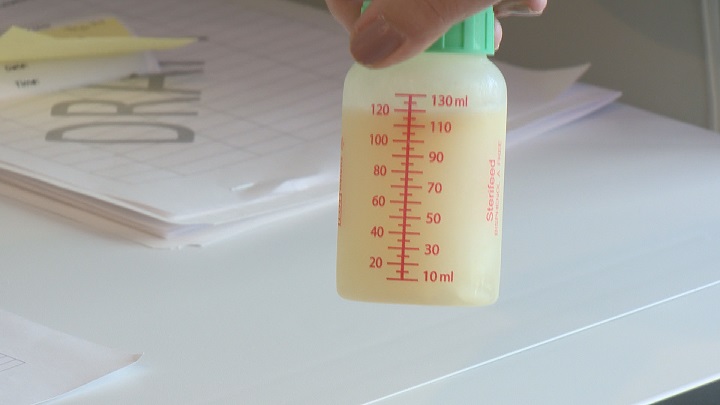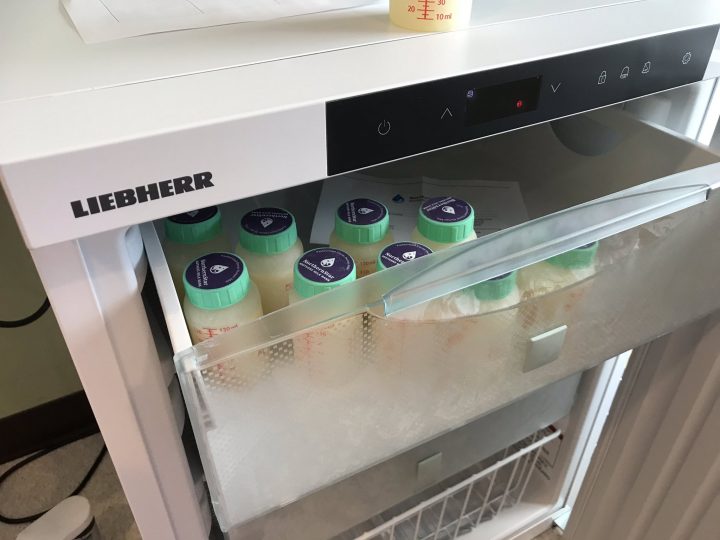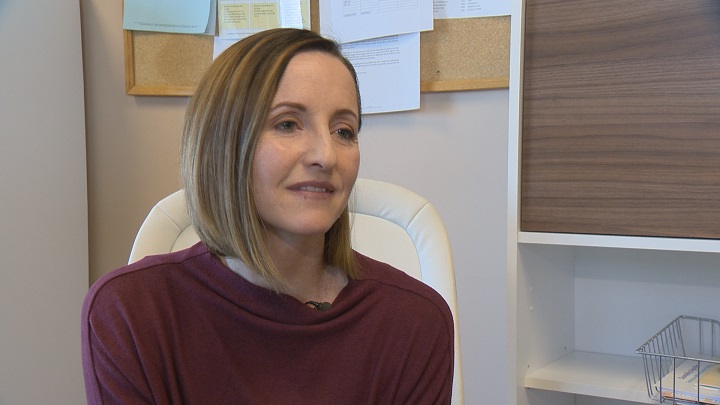A breast milk donor program has expanded to include one more Saskatchewan city.

Moose Jaw’s Dr. F.H. Wigmore Hospital is the latest to include the Pasteurized Donor Human Milk Program (pHDM), which supports newborn breastfeeding. It launched on Oct. 1, and follows Yorkton, Regina, and Saskatoon in its implementation.
“This is available for any babies that need supplementation during their stay [in the NICU). It provides the benefits of breast milk to babies as they’re transitioning to their mother’s own milk,” said Dr. Joanne Fynn, a family physician at Alliance Health and member of the breastfeeding action committee in Moose Jaw.
“Often there are baby factors and mom factors,” explained Fynn. “Often a mother’s milk is available and that’s the first choice but when a baby is premature — that is a very important time to have mom’s milk or pasteurized donor human milk available as it protects the infant’s gut and provides immune factors to the baby.”
Fynn said other situations donor breast milk is needed for newborn babies include when they have jaundice, dehydration, weight loss, illness, or difficulty latching.
Not being able to produce milk and complications during pregnancy or birth leading to a mother needing medication are factors in whether or not she can breastfeed.
Fynn said there can be a stigma around mothers not being able to or choosing not to breastfeed their newborn no matter the reason.
“Moms who intend or choose to breastfeed put a lot of pressure on themselves to provide milk to their babies,” said Fynn, “so often when difficulties do arise, there can be a lot of feelings of guilt, shame, or inadequacy involved, so having this program available helps moms in those situations, just knowing that their baby is still getting breast milk and all the benefits that that brings.
“It helps give them more time to establish their breastfeeding to get the help they need and to move forward and have a positive experience in their breastfeeding journey.”

Get weekly health news
The donated milk comes from a non-profit organization in Calgary called NorthernStar Mothers Milk Bank.
“Mothers in the area can donate milk to the milk bank and these mothers have gone through a stringent screening process, which includes an interview as well as blood tests, and once that is done the milk is donated and stored, tested, and pooled at the milk bank and pasteurized.”
Typical donors include mothers who are producing an excess of milk or those who experience the death of an infant.
The pasteurizing is a heat treatment that eliminates bacteria, according to Fynn, and maintains the majority of the beneficial components and is prepared to be distributed to hospitals across Canada.
Education is important, and Fynn recommended pregnant women to seek out their breastfeeding classes or prenatal classes to become aware of the different stages of lactation and any problems that may occur so they are better prepared to deal with the problems if they arise.
Mothers and mothers-to-be or family members can also call 811 to obtain information about maternal wellness.








Comments
Want to discuss? Please read our Commenting Policy first.